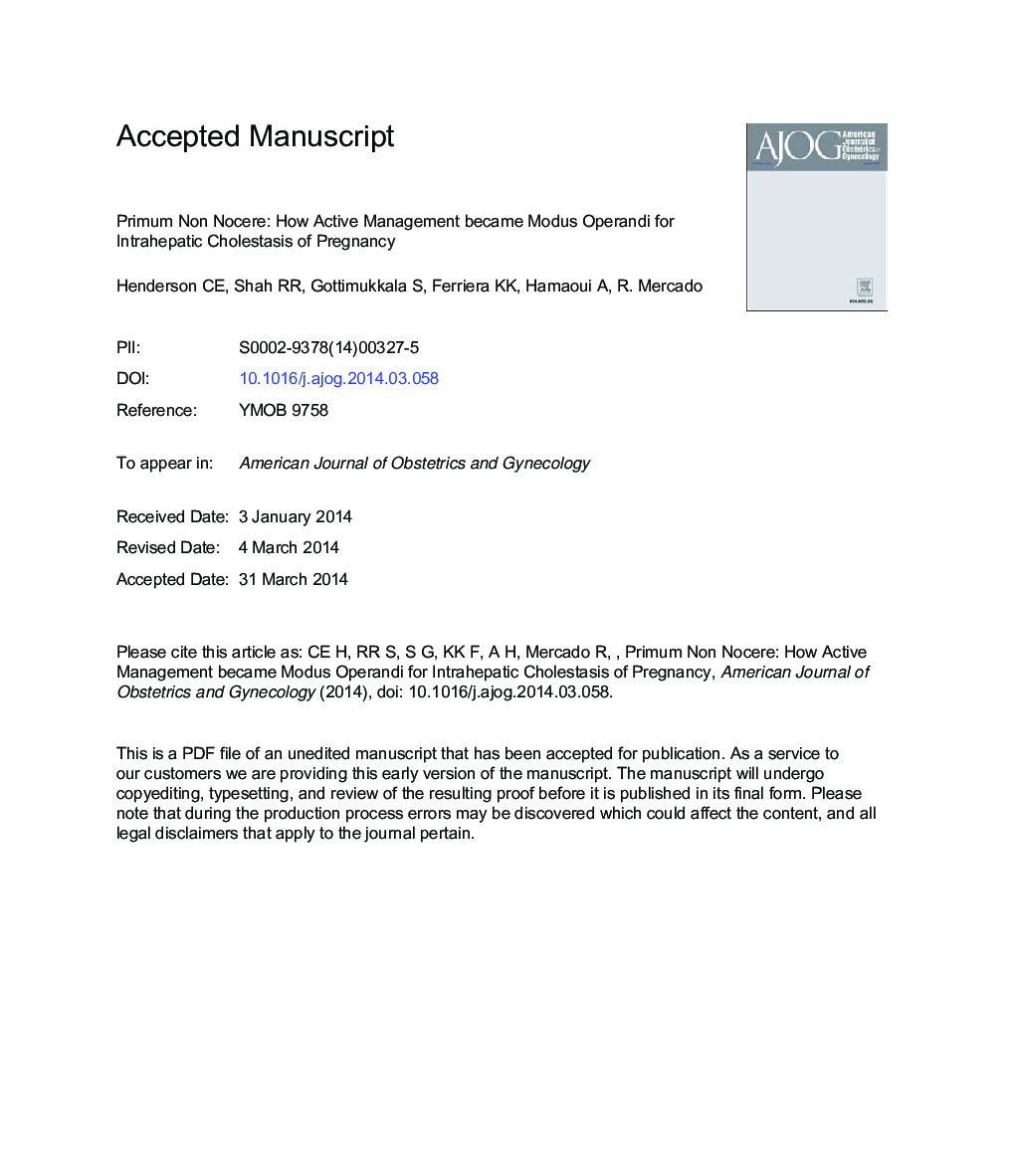| Article ID | Journal | Published Year | Pages | File Type |
|---|---|---|---|---|
| 6145702 | American Journal of Obstetrics and Gynecology | 2014 | 17 Pages |
Abstract
The Royal College of Obstetrics and Gynecology does not endorse routine active management of intrahepatic cholestasis of pregnancy (ICP)-affected pregnancies. In contrast, the American College of Obstetricians and Gynecologists supports active management protocols for ICP. To investigate this controversy, we evaluated the evidence supporting ICP as a medical indication for early term delivery and the evolution of active management protocols for ICP. Sixteen articles published between 1986 and 2011 were identified. We created 2 groups based on whether obstetric care included active management. Group 1 comprised 6 uncontrolled reports without active management that were published between 1967 and 1983 that described high perinatal mortality rates that primarily were related to prematurity sequel. This group became the fundamental 'core' evidence for ICP-associated stillbirths and by extrapolation justification for active management. Group 2 was comprised of 10 reports in which the authors credited empirically adopted active management with the observed low stillbirth rates in ICP-affected pregnancies. Although the group 1 articles routinely are cited as evidence of ICP-associated stillbirth risk, the 1.2% stillbirth rate (4/331) in this group is similar to the background stillbirth rates of 1.1% (11/1000) and 0.6% (6/1000) in 1967 and 2011, respectively (PÂ = .062 and PÂ = .0614, respectively). Likewise, the stillbirth rates for articles in group 2 were similar to their respective national stillbirth rate. Nevertheless, group 2 articles have become the evidence-based support for active management. We found no evidence to support the practice of active management for ICP.
Related Topics
Health Sciences
Medicine and Dentistry
Medicine and Dentistry (General)
Authors
Cassandra E. MD, Reena R. MD, Sri MD, Khaldun K. MD, Abraham MD, ScD, Ray DO,
